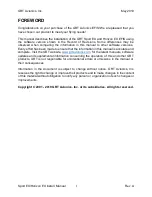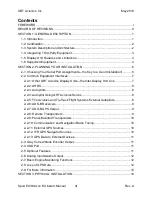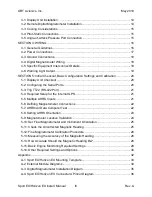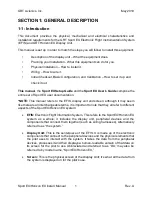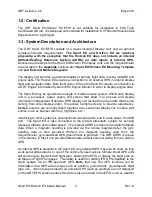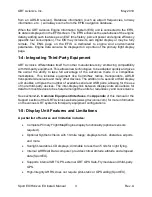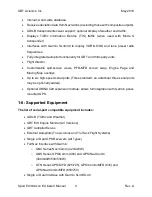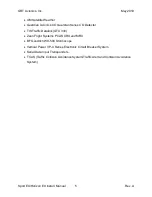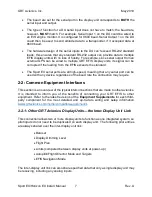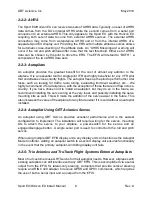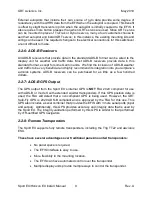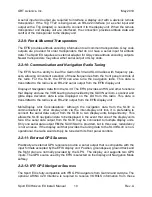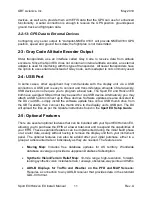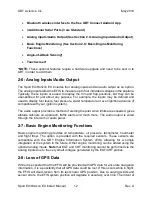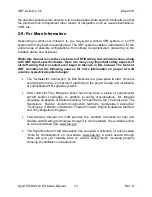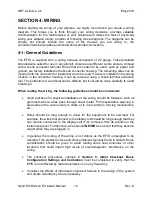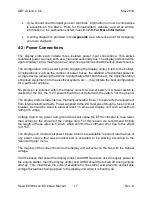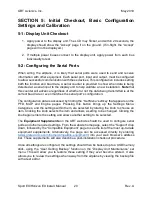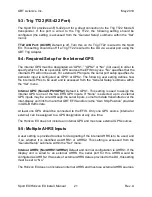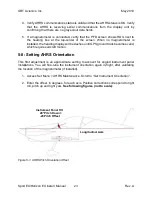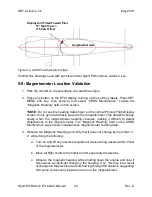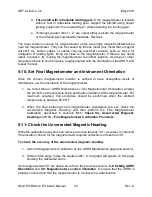
GRT Avionics, Inc.
May 2019
Sport EX/Horizon EX Install. Manual
10
Rev. A
A serial input and output are required to interface a display unit with a uAvionix remote
transponder. If the Trig TT22 is being used, an RS-422 interface (or a serial input and
output with a Trig Adapter) is needed to connect it to the display unit. When the remote
transponder and display unit are interfaced, the connection provides altitude data and
control of the transponder to the display unit.
2-2-9: Panel-Mounted Transponders
The EFIS provides altitude encoding information to all common transponders. Gray code
outputs are provided for older transponders that do not have a serial input for altitude
data. The Sport EX requires an external adapter for Gray code altitude encoding outputs.
Newer transponders may allow either serial output or Grey code.
2-2-10: Communication and Navigation Radio Tuning
The EFIS has the ability to load the Garmin SL30 and SL40 radios with frequency pre-
sets, allowing convenient selection of these frequencies from the front panel controls of
the radio. For the SL30, the EFIS can also tune the navigation radio. This data is
transmitted to the radio via an RS-232 serial output from the EFIS display unit.
Display of Navigation Data from the SL30:
The EFIS provides an HIS and other functions
that display and use the VOR bearing data provided by the SL30 Nav/Com. Localizer and
glide slope deviation data is also displayed on the DU from this radio. This data is
transmitted to the radio via an RS-232 output from the EFIS display unit.
Multi-Display Unit Considerations:
Although the navigation data from the SL30 is
communicated to other display units via the inter-display unit link, it is preferable to
connect the serial data output from the SL30 to two display units independently. This
allows the SL30 navigation data to be displayed in the event that one of the display units
fails. One serial data output from the SL30 may be connected to multiple display units.
Only one serial data output
TO
the SL30/SL40 is provided, but in this case, redundancy
is not an issue. If the display unit that provides the tuning data to the SL30/SL40 is non-
operational, the radio would simply be tuned with its front panel controls.
2-2-11: External GPS Sources
Practically all external GPS receivers provide a serial output that is compatible with the
input formats accepted by the EFIS display unit. Position, groundspeed, ground track and
the flight plan are normally provided by the GPS. The display unit supports two GPS
inputs. The GPS source used by the EFIS is selected on the display unit Navigation Mode
softkey.
2-2-12: IFR GPS Navigator Sources
The Sport EX is fully-compatible with IFR GPS navigators from Garmin and Avidyne. The
optional ARINC 429 Interface is required to receive VOR/ILS information from these

